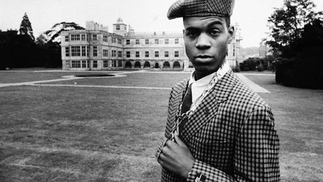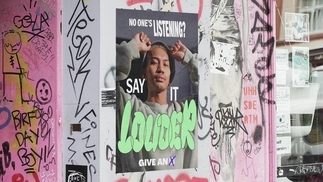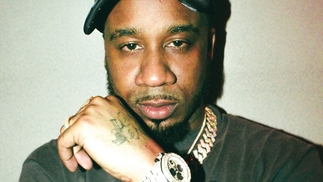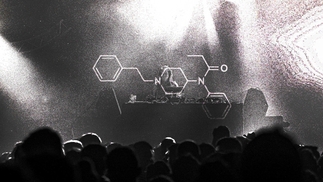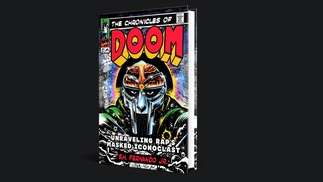BIG IN THE GAME
We talk to UK hip-hop legend Rodney P about ‘Money Mad’...
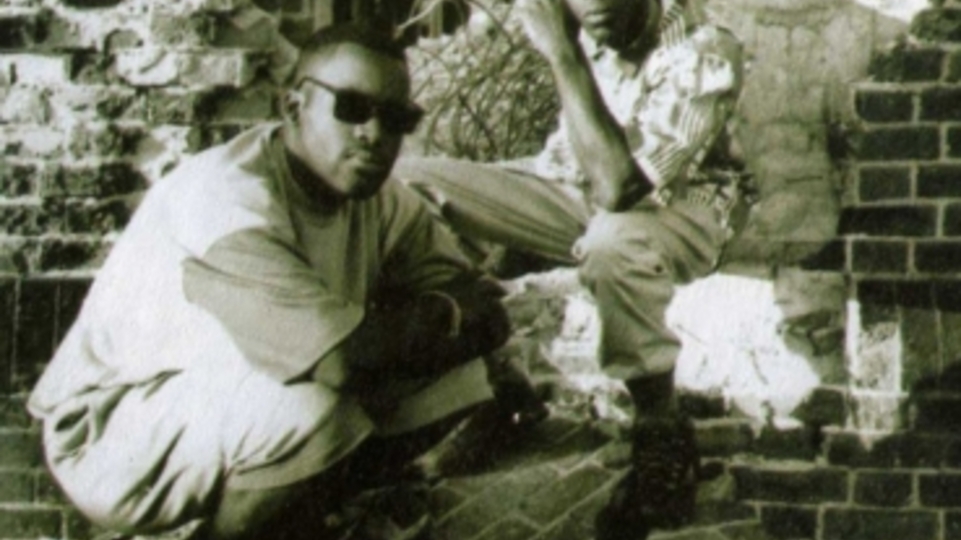
Released in 1988, seminal UK hip-hop track ‘Money Mad’ by the London Posse was one of the principal cuts on which UK MCs first used their own voices and accents. “At first I chatted in an American accent too. I did!” London Posse’s Rodney P admits to DJ Mag. “I, like everyone else when we started, was rapping in a super-fake American accent.”
The London Posse came about when ex-Clash man Mick Jones from Big Audio Dynamite asked beatboxer Sipho — who had performed on B.A.D’s ‘C’Mon Every Beatbox’ — to get a group together to tour with them. “We weren’t a crew – we didn’t even have a name,” recalls Rodney, then in his mid-teens. “We were just friends who used to hang out. But when me and Bionic met, we already had the idea of doing it as hip-hop and reggae, and blending the two.”
Buzzin’ on LL Cool J and Run DMC records, the guys soon followed B.A.D to New York – even though they weren’t booked to do any shows there. “It was there where you realised the stupidity of bringing coals to Newcastle,” Rodney says on rapping in American accents. ‘It was stupid.”
“We would be out, rapping and hanging out and doing whatever, and it was when we spoke with our UK accents – a bit of Cockney, a bit of Yardie – that we really got a response,” the Riddim Killer continues. “People were amazed by that — black people with these funny accents — and having these fake silly American accents really weren’t getting us no pull at all.”
In New York, everyone referred to them as ‘the London Posse’, so when it came to choose a name for the next B.A.D tour they didn’t have to think too hard. But most of the growing UK hip-hop scene still expected their rappers to sound American. “Other people carried on trying to do American accents, ‘cos they were stupid and we were smart,” says Rodney.
“At the time that we came out, we weren’t universally accepted by the hip-hop scene. We first got love, from doing the shows with Big Audio Dynamite, from the ska scene and the UK punk scene — they were more understanding of what we were trying to do. Some kids were like, ‘We don’t wanna hear that shit, this is hip-hop, it’s supposed to sound American, you can’t rap in Cockney’. But, as time has shown, we were right and they were wrong.”
Rodney also suggests that the London Posse took a cue from UK sound system culture. “We were listening to Saxon Sound, Coxon and all these sounds, and more than any other Saxon Sound had the mentality of doing stuff with UK black artists – they weren’t Jamaicans, and they were bringing a different take and telling different stories,” he says. “We took that mentality and transposed it onto hip-hop.”
The London Posse released their eponymous debut single in 1987, produced by Tim Westwood, on Big Life. Beatboxer Sipho and DJ Biznizz left not long after, but MCs Rodney and Bionic carried on. For ‘Money Mad’, released on Westwood’s Justice label, the beats were produced by Chuck New, who used to work for Jive Records out of Battery Studios in Willesden, West London.
“Me and Bionic went to Dub Vendor in Clapham Junction the morning we were going to make the tune, and we got lots of seven-inches we wanted to use,” Rodney remembers. “You can hear in ‘Money Mad’ there’s lots of different reggae samples. We went to Harrow Road, and Westwood was involved as well, and we went to the house and told them what our ideas were.”
Returning the next day, Chuck had built the skanking sampladelic beats and the guys set about laying down their ruffneck rhymes. “What’s ‘Money Mad’ about? It’s about how we were living at the time,” says Rodney. “Not just us personally, but generally with street culture in the UK at the time, everyone was about getting money and earning. Man was fresh out of school and not working, and doing a few naughty things back then.”
Declaring that the main influence on the track was a record by Tenor Fly, back then an MC for reggae soundsystem Coxon, Rodney also says ‘Money Mad’ was having a pop at the Thatcherite fetishisation of wealth so prevalent at the time. “The times were all about getting money,” he says. “On a road level, we were broke and needed money, but then society was all about getting money, there was no real social aspect — it was all about getting paid. Anything you could do to get paid was ok, whether you’re killing yourself to get it or not. That’s what that song was about.”
Soon ‘Money Mad’ was all over the pirates, and it particularly helped convince black artists that they could just be themselves. “It changed the landscape a little bit,” reckons Rodney. “Up until that point, a lot of people didn’t believe that what we were doing was going to go any further than a little UK Cockney rap tune. For us, it was important not to get caught up with doing a kinda Dick Van Dyke/Mary Poppins kinda vibe, it was important that we got our real voices down.”
When Westwood stopped his label to concentrate on his radio show, the London Posse signed to Island Records offshoot Mango and set about making their ‘Gangster Chronicles’ album in the infamous Island Studios in West London. “We were all about telling the stories that we had to tell,” Rodney says. “We wasn’t making that shit up. If you listen to the record and the subject matter, that’s pretty much what we were living. There was criminal elements in that, but we were just telling the story that was true to us at the time.”
‘Gangster Chronicles’ is being re-released this month by Tru Thoughts, and still stands up as a fascinating snapshot of early UK hip-hop styles. Rodney starts riffing about gangster rap and negative music, recalling how “Public Enemy had me in the library picking out books and shit”, and how there never was a second London Posse album.
“We were on Mango, and Mango got closed down,” the rapper explains. “We had a good relationship with them, so they gave us back the rights to everything and we set up our own label, Bullit Records, and intended to make another album. We made a lot of tracks, but it just never materialised. London Posse never really came to an end — it just dissipated.
“It wasn’t like we just said, ‘Right, that’s it, I fucking hate you, you’re a cunt!’” he continues. “That never happened, it just wore out. Times were changing and shit was getting harder, and drum & bass was taking over and the rave scene. It was a hard time, to be honest.”
Rodney, of course, has been involved with many quality projects since, and he concurs with DJ Mag’s suggestion that many subsequent UK artists and scenes — drum & bass, grime etc — owe a big debt of gratitude to the London Posse. “The reality is that we were responsible in a big part for why the music sounds like it does today,” Rodney concludes. “Part of it was that UK, ‘I’m a Londoner, I represent this’ mentality. That mentality in the music didn’t exist until we brought it. Not in black music. In terms of hip-hop and reggae, that mentality wasn’t there.”
Rodney’s righteously proud of what the London Posse did, and talks about maybe getting the crew back together for one big nostalgic show. He doesn’t want to do a tour, though, as “a lot of the mentality that’s on those records ain’t the mentality that we have today.
“I find a lot of the records that we made cringeworthy and hard to listen to now,” he adds, “just because I’m listening to my 17-year-old self, but in terms of the importance and impact of the record, I appreciate it for what it was – definitely. ‘Money Mad’, I think, is probably the best UK hip-hop tune ever made. It sounds like I’m just being boastful when I say that, but I believe it.”
